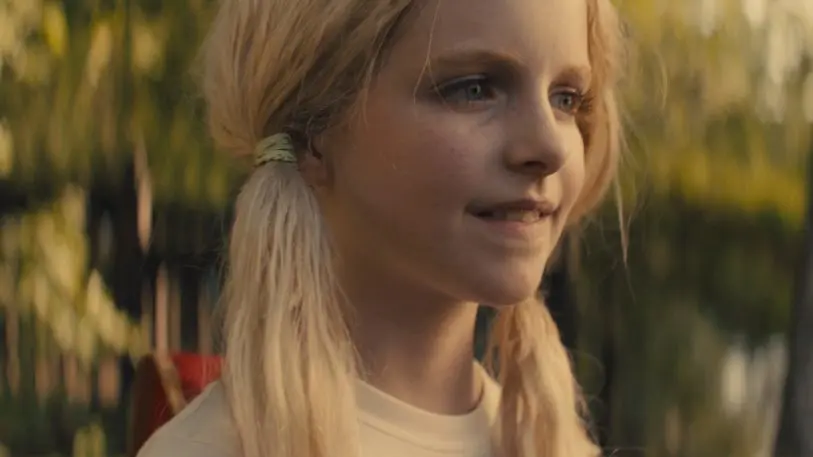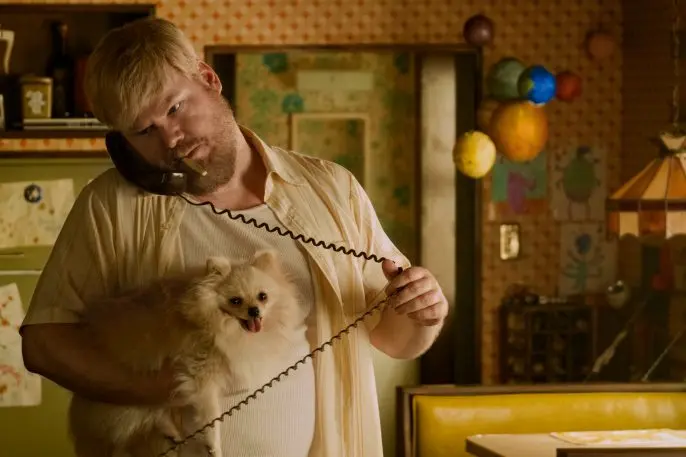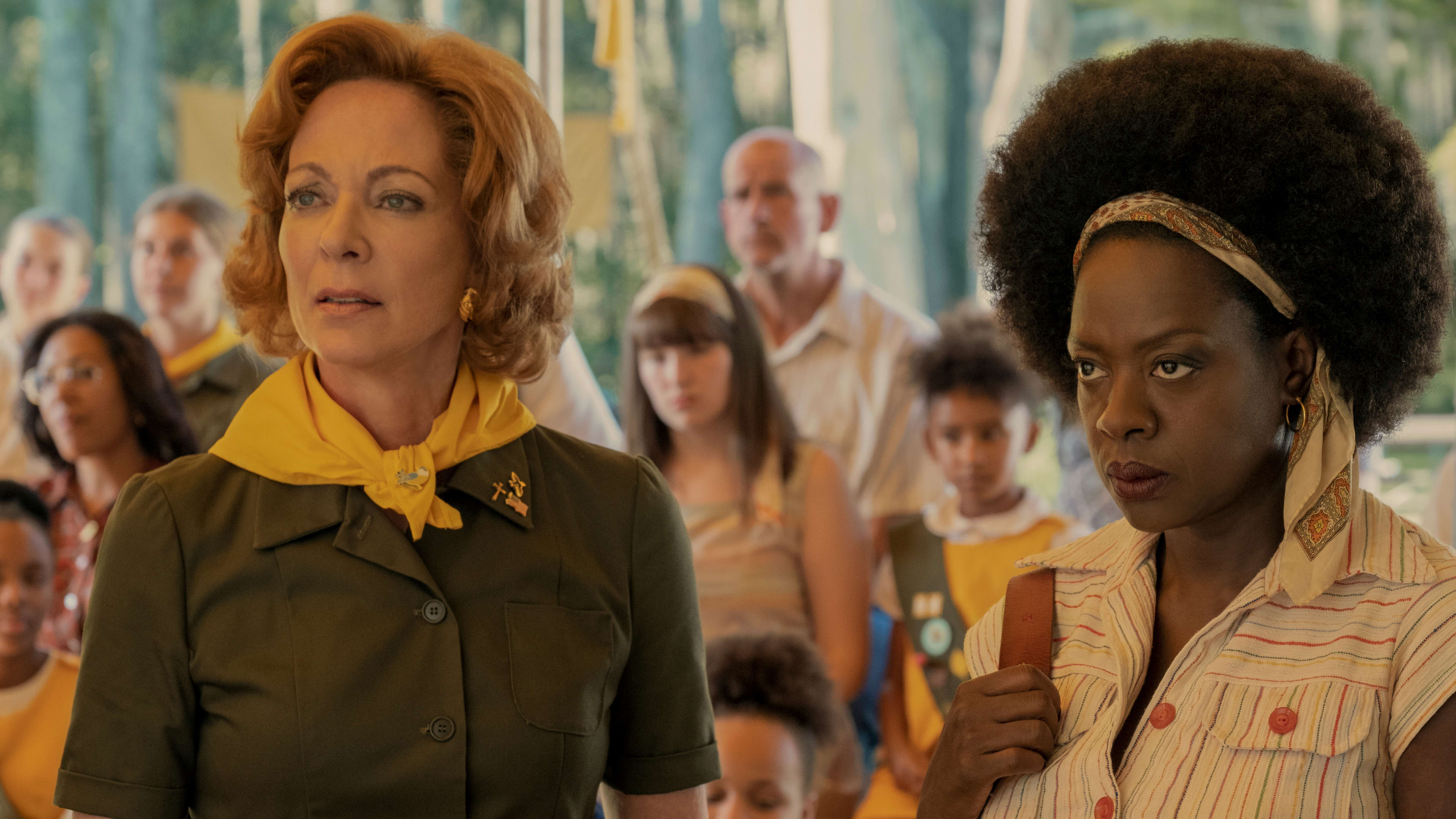When directing duo Bert and Bertie got their hands on a script for Troop Zero, they knew the project was theirs.
The story centered around a group of misfit girls who band together and form a ragtag troop of Birdie Scouts (think Girl Scouts). Bert and Bertie saw Troop Zero through a lens of magical realism, something that had all the heart and comedy of a typical underdog story but with a distinct visual style.
They visualized the film they wanted to make, but producer Todd Black (Fences, The Pursuit of Happyness, Forrest Gump) couldn’t see it.
“He didn’t want first-time directors on the film,” Bert says. “Not that he doesn’t support first-time directors, but it’s a very ambitious movie.”
Bert and Bertie linked up as a directing and writing duo back in 2005, and since then the majority of their work has been in short films and commercials. They made one feature film—2016’s Dance Camp for YouTube Red—but it didn’t have the scope and star power that would’ve made them an immediate shoo-in for something like Troop Zero.
Set in 1977 rural Georgia, Troop Zero, an adaption of screenwriter Lucy Alibar’s (Beasts of the Southern Wild) stage play Christmas and Jubilee Behold the Meteor Shower, follows Christmas Flint (Mckenna Grace), an adventurous preteen coping with the loss of her mother. One thing that helps is her fascination with outer space. So when the opportunity to win a slot on NASA’s Golden Record—a real initiative where recordings from Earth were launched into space—comes about through a Birdie Scout competition, she leaps at the chance. But first she has to assemble her squad and convince her father’s very reluctant coworker Miss Rayleen (Viola Davis) to be their troop mother, not to mention overcome the domineering rival troop led by the poised yet vicious troop leader Miss Massey (Allison Janney).
“We persisted. We made this huge pitch and they eventually agreed to see us,” Bert says. “We showed them our film. And it’s one of those rare occasions where a producer looks at it and goes, ‘Yeah, that is the film.’ Even though he didn’t want first-time directors, the creative spoke to him and he saw that our connection to this movie was absolutely real and authentic.”
Go big
One thing producers responded to with Bert and Bertie’s vision for Troop Zero was the scale they brought to the film.
“There’s a small version of this movie,” Bert says. “And there’s also a version of the movie that was ambitious and goes from the micro to the macro, going from tiny Christmas Flint and ending up in the universe among the stars.”
Troop Zero is as much about finding your tribe in a small town as it is about claiming your identity at the scale of the universe. There’s a scene toward the end of the film where Christmas and her gang of outcasts are shouting to the sky, “I’m here!” as the camera zooms out and into the heavens.

“We talked about Christmas’s perspective of the world and the magic of seeing reality through the eyes of a child,” Bertie says. “We talked about the camera being with her at her level, seeing things from her point of view. We talked about the slightly heightened colors and the way that nostalgia works, almost like Christmas, the adult looking back at her childhood. How things were a little bit scarier than they really were, how things were a little bit more vibrant than they really were.”
Watch your tone
One of the biggest challenges—and, subsequently the biggest takeaway—that Bert and Bertie had was making sure everyone involved was making the same film.
“In the process of making [Troop Zero], we realized that we had to tonally get everyone on the same page,” Bertie says. “It was finding that balance between the comedy and the poetry, the sense of giving a greater and deeper message but not becoming too self-absorbed with that because we were making entertainment.”
For example, there was a scene of Christmas strolling through her trailer park introducing the audience to her colorful cast of neighbors. But in the end, it didn’t make the cut.
“That was the poetry of it. But when you got to the comedy scenes, you struggle to know what type of film you were in,” Bertie says. “By taking those scenes out, even though we loved them as cinematic moments, people settled into what this film was much more readily. It didn’t serve the purpose of the tone that we were trying to create in the first five minutes of the movie.”
Think out loud
Naturally, one of the key pillars of Bert and Bertie’s dynamic has to be communication. Directors in general have to be able to communicate their ideas effectively to everyone else.
In Bert and Bertie’s case, there’s an added filter of having to convene on an idea between each other first.
“It’s probably opposite to a lot of directors’ processes. Instead of keeping something in your head or your heart, you have to say it and you have to represent it,” Bert says. “I think that’s one of the fundamental skills we’ve had to learn and cultivate between us. It’s very important to a duo. Fortunately, producers love it because they actually know what’s going on in our heads.”

Recognize your brand’s excellence by applying to this year’s Brands That Matter Awards before the early-rate deadline, May 3.
